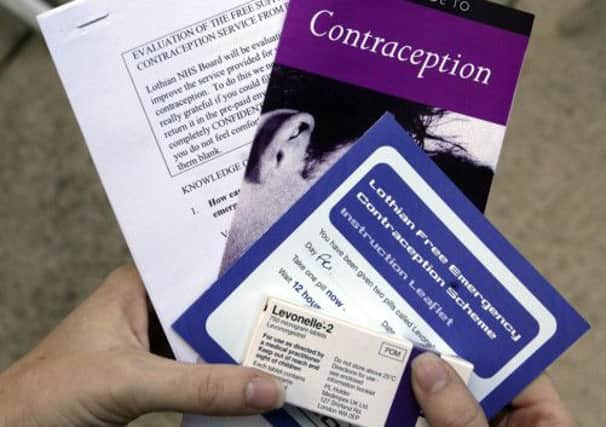Demand for morning-after pill up by 400 per cent


Requests for the pill – which, despite its name, is effective for up to 72 hours after sex – have risen from 20,000 in 2007-08, to more than 93,000 today.
This has seen the Government’s cost of providing the pill rise from £140,000 to more than £500,000.
Advertisement
Hide AdAdvertisement
Hide AdAt the same time, there has been a drop in abortions and teenage pregnancies.
Abortions fell from 13,835 in 2008 to 12,447 in 2011, the most recent figures available. Teenage pregnancies fell from 4,242 in 2008, to 3,278 last year.
Experts believe there is a growing awareness of the morning-after pill, which has been available free from pharmacies since 2008.
However, they do not believe it is being used as an alternative to traditional forms of contraception, such as condoms.
Hawys Kilday, chief executive of Caledonia Youth, a sexual health support charity, said: “In the last decade, there has been a significant increase in the awareness the public have of sexual-health issues, and that includes emergency contraception.”
She added: “Critics say it’s used as a form of contraception. I would say not. It’s usually that a condom has burst, or they’ve been under the influence of alcohol or drugs and it has happened.”
Ms Kilday said there may well be a link between the rise in morning-after pills and the fall in abortions and teenage pregnancies, but more research needed to be done.
The number of sexually transmitted diseases has also risen sharply, but Ms Kilday is not convinced there is a link.
Advertisement
Hide AdAdvertisement
Hide AdIn 2011, it emerged that cases of sexually transmitted infections had trebled in a decade.
There are concerns about the rise in the use of morning-after pills and whether they encourage risk-taking behaviour that will, ultimately, spread disease.
Jackson Carlaw MSP, Scottish Conservative health spokesman, said: “It has to be emphasised that this is a last-ditch solution for young women and girls, not something routinely taken like paracetamol. Another danger of its increasing popularity is the impact this will have on sexually transmitted diseases.
“The morning-after pill does nothing but encourage the risk-taking which such infections thrive on and I’m not convinced that message is being well enough communicated.”
A spokesman for the Catholic Church said: “Economically, it appears to be a transfer of funds from the NHS to pharmaceutical companies for little, if any, benefit to the country and especially women.”
However, the Scottish Government insisted increased awareness and access to morning-after pills was positive.
A spokesman said: “The availability of emergency contraception ensures women can access contraception and advice as soon as they need it, therefore helping reduce the likelihood of an unplanned pregnancy.”